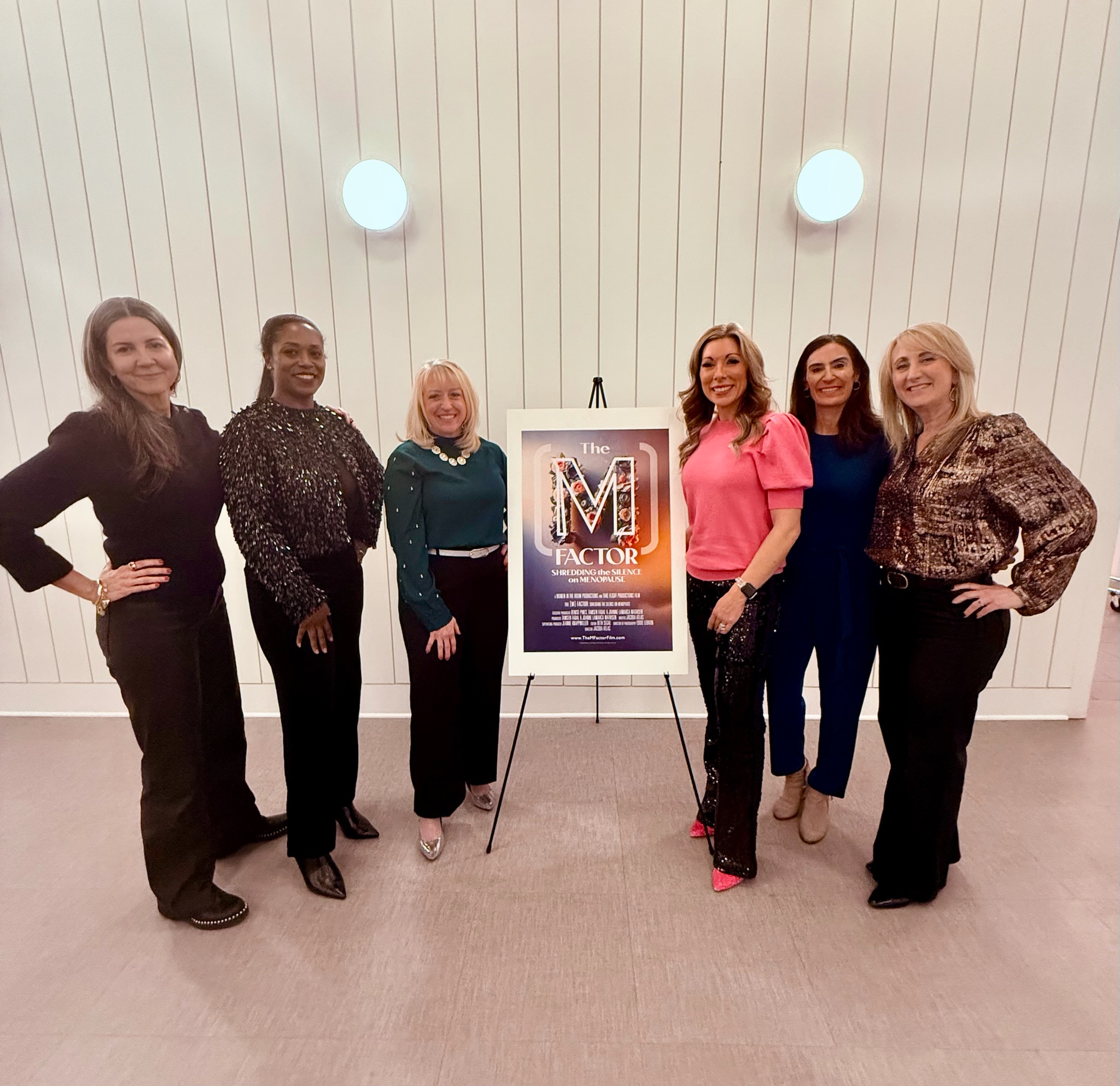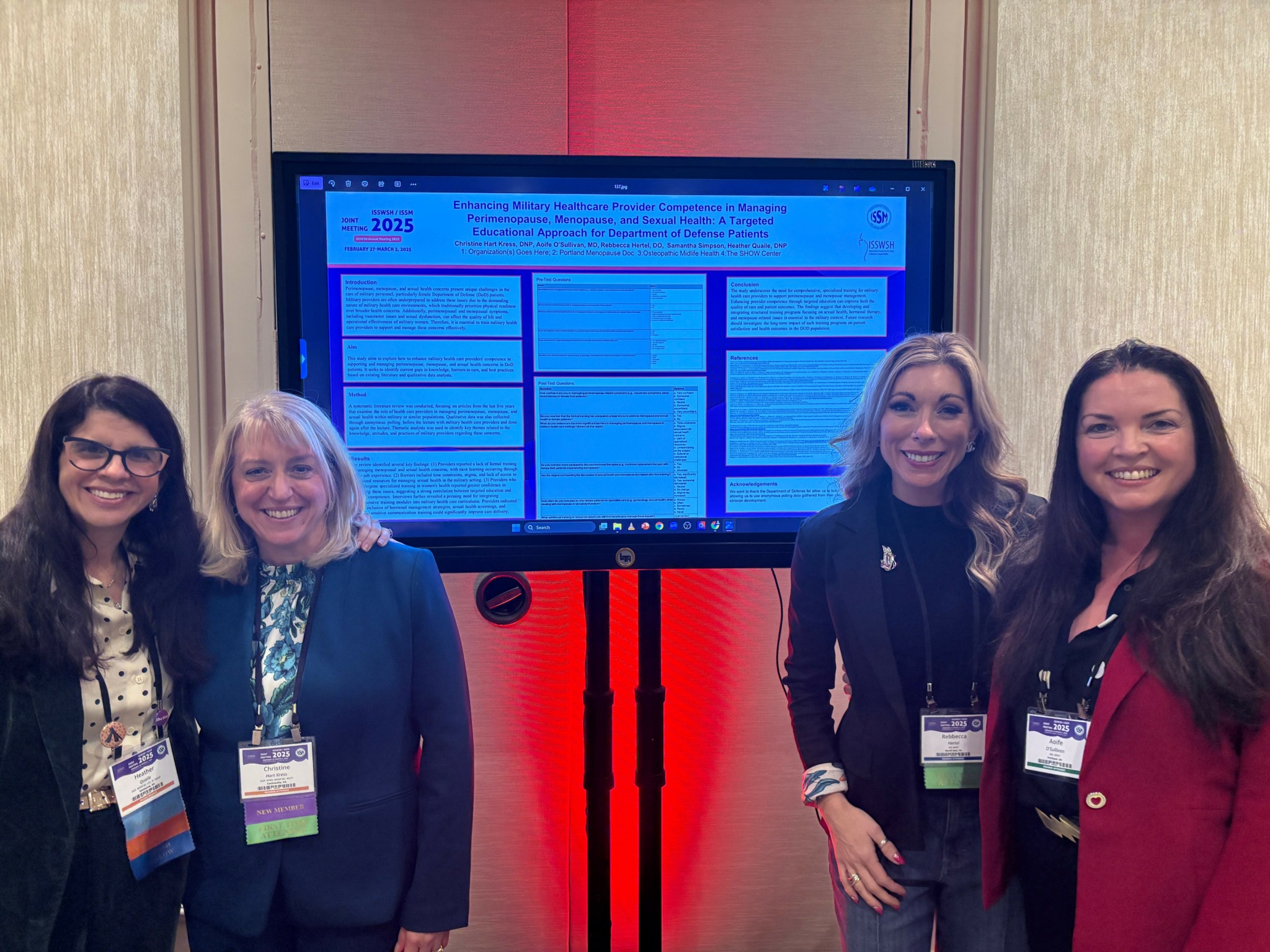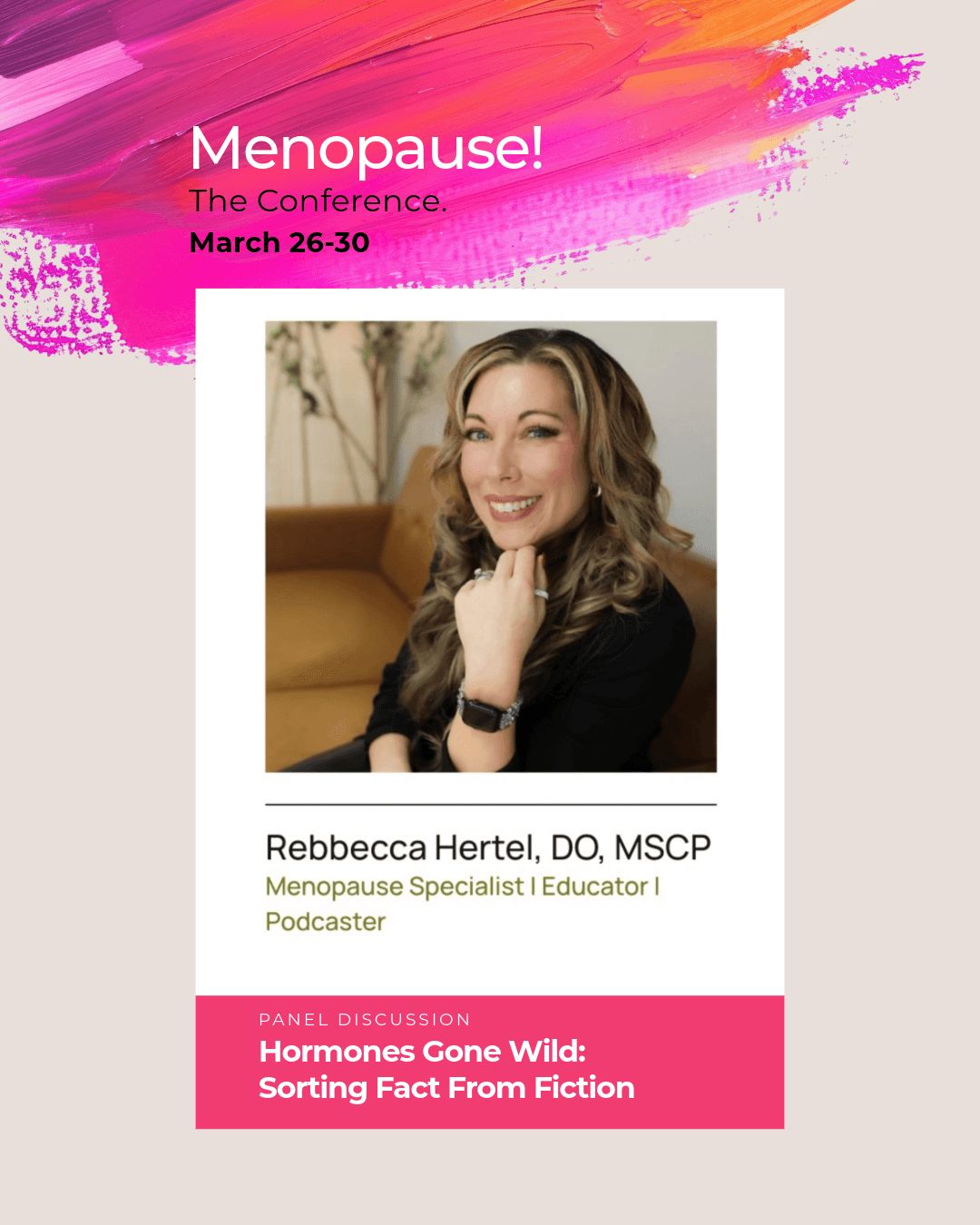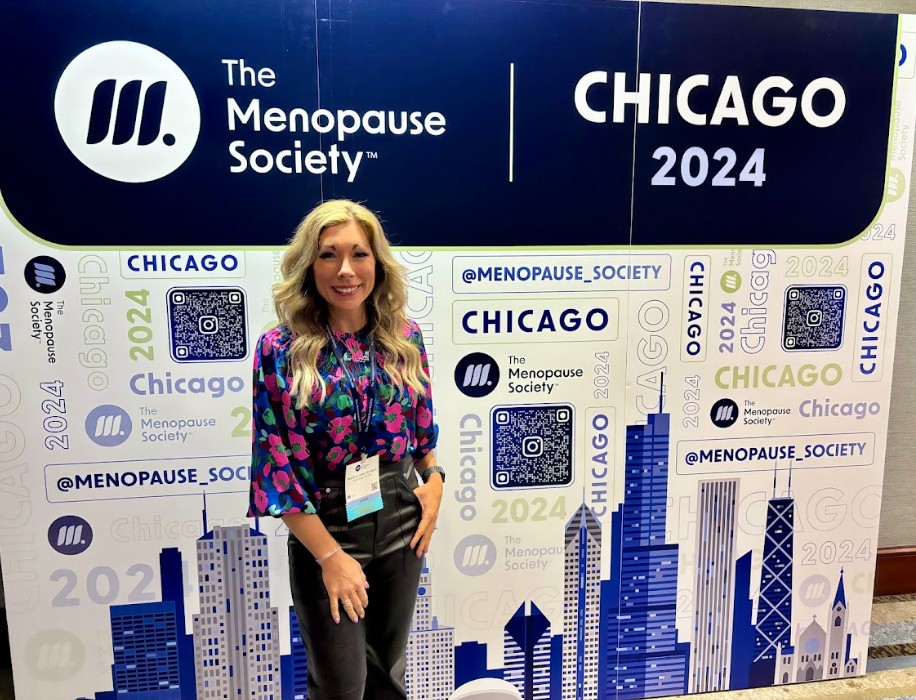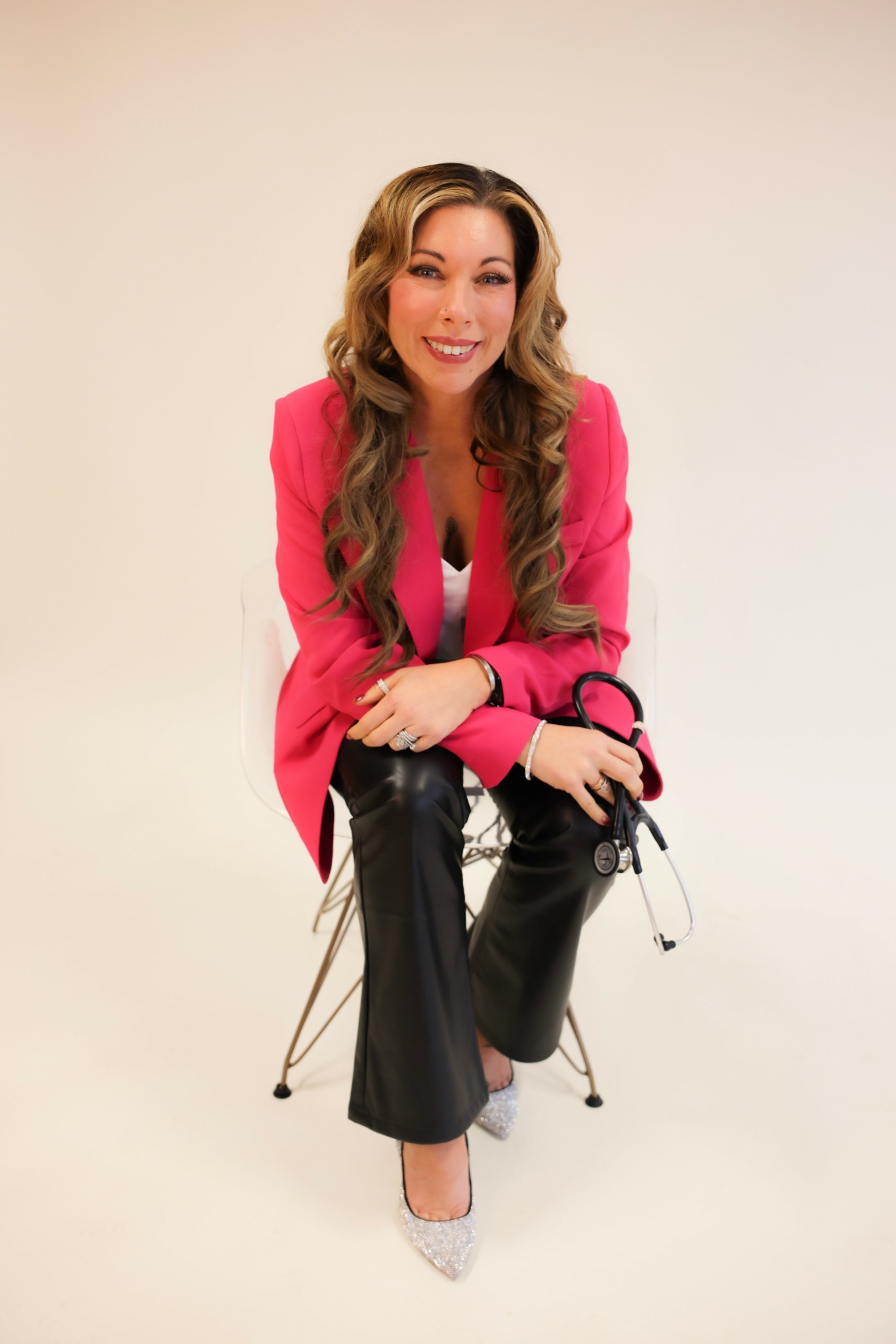Alright – so today we’ve got the honor of introducing you to Rebbecca Hertel. We think you’ll enjoy our conversation, we’ve shared it below.
Rebbecca, thanks for taking the time to share your stories with us today We’d love to hear the backstory of how you established your own practice.
The decision to start my own practice, Osteopathic Midlife Health, was the result of both professional experience and personal conviction. After nearly 20 years as a board-certified family physician, I had seen countless midlife women slip through the cracks of our healthcare system. Perimenopause and menopause were often misunderstood, misdiagnosed, or brushed aside. I wanted to create a space where those women felt heard, validated, and cared for—with time and depth that simply isn’t possible in a traditional, insurance-driven model.
Before taking the leap, I worked part-time for a telemedicine company. That experience was invaluable. It gave me real-world insight into how virtual care could remove barriers to access, especially for women juggling careers, caregiving, and their own health needs. It also showed me the limitations—. I realized that if I could take the benefits of telemedicine and combine them with a high-touch, relationship-driven approach, in a different business model, I could build something truly different.
Once I committed to the idea, the early steps came quickly. I chose a private concierge type model so I could spend more time with each patient without worrying about insurance constraints. I worked through the legal and licensing requirements, expanding my telemedicine license to multiple states. I invested in an electronic health record, secure messaging platform, scheduling tools, and payment systems—all the behind-the-scenes infrastructure that makes a modern virtual practice run smoothly.
I also spent time defining my brand voice—one that would feel both expert and approachable. This wasn’t just about a logo; it was about creating trust with women who had often been dismissed or told “everything is fine” when they knew something wasn’t right.
Of course, there were challenges. I had to learn to wear multiple hats—clinician, business owner, marketer, tech troubleshooter. There were moments of self-doubt, especially in the beginning, you must market yourself on social. There were also financial realities—balancing startup costs with the need to invest in systems and support.
If I could do one thing differently, I would have launched sooner. I spent too much time trying to perfect every detail before opening my doors, when the truth is, you learn so much more by starting and refining along the way.
For young professionals considering starting their own practice, my advice is this:
Get clear on your “why.” It will carry you through the inevitable challenges.
Build a network. Surround yourself with people who understand both clinical care and entrepreneurship.
Outsource strategically. Free yourself from tasks that drain your time and energy.
Start before you feel ready. You can—and will—build as you go.
The reward for all of this? The freedom to practice in alignment with my values, to provide precision midlife care without rushing, and to watch women transform when they’re finally given the time, validation, and expertise they deserve. Every challenge has been worth it.
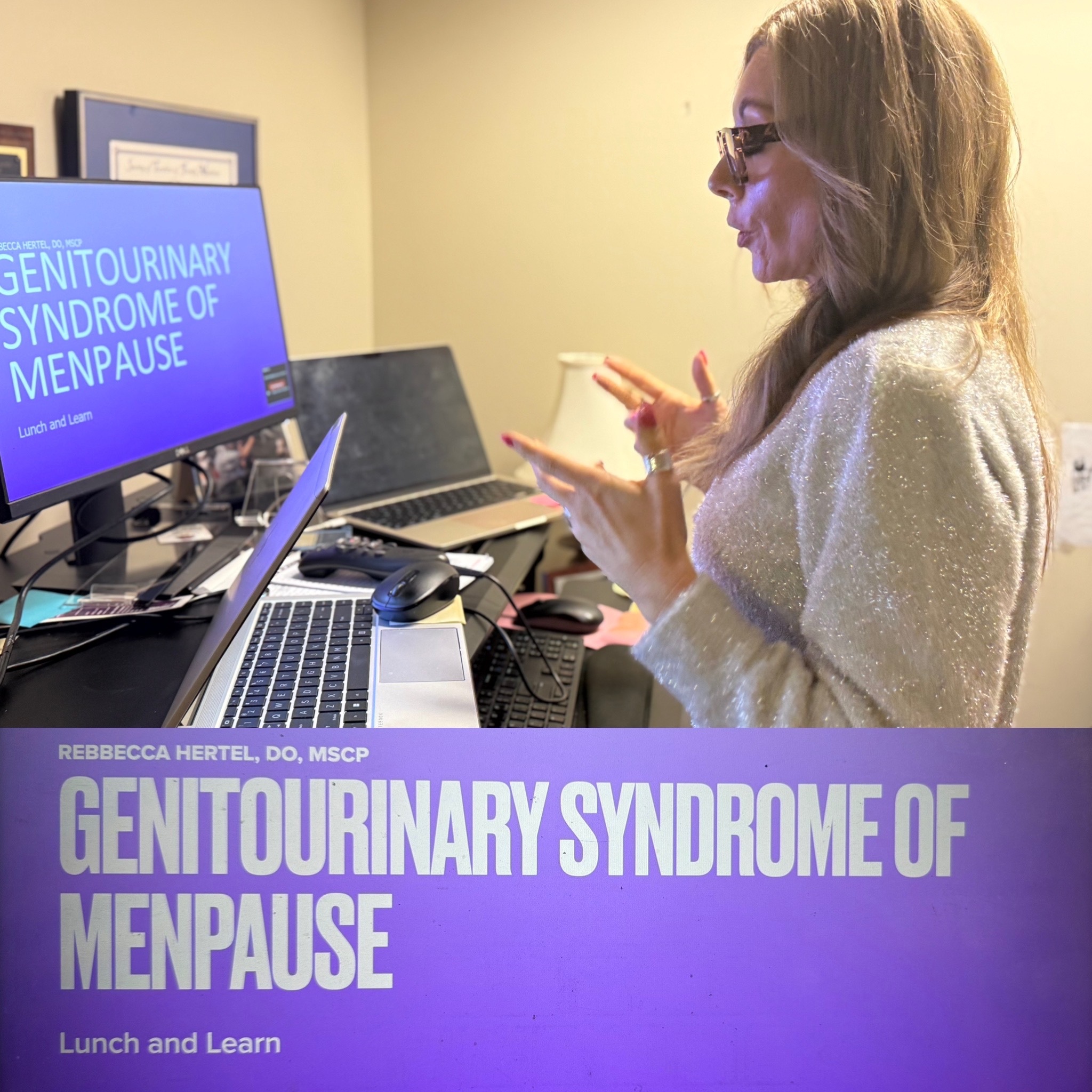
Rebbecca, love having you share your insights with us. Before we ask you more questions, maybe you can take a moment to introduce yourself to our readers who might have missed our earlier conversations?
Dr. Rebbecca Hertel, DO, MSCP, is a board-certified osteopathic family medicine physician, certified menopause practitioner, and the founder and CEO of Osteopathic Midlife Health, a telemedicine practice dedicated to midlife and menopause care. With nearly 20 years of experience, Dr. Hertel has provided compassionate, patient-centered care across all life stages.
A passionate advocate for women’s health, she is dedicated to advancing education and awareness about the unique changes women experience during perimenopause and menopause. She has also contributed to research in this field, helping to expand the evidence base for improved care and treatment options.
Dr. Hertel serves as an Adjunct Clinical Assistant Professor in the Department of Family Medicine/Osteopathic Manipulative Medicine at LECOM, where she teaches medical students and mentors colleagues to enhance care in family medicine. Beyond her clinical work, she delivers menopause education to providers, students, and communities through lectures, panels, and podcasts.
She also maintains an active presence on multiple social media platforms, where she shares valuable insights, resources, and encouragement to help women thrive in midlife and beyond. Dr. Hertel is the founder and host of the YouTube series, The Founder’s Series and the co-host and co-owner of the podcast The Dusty Muffins™.
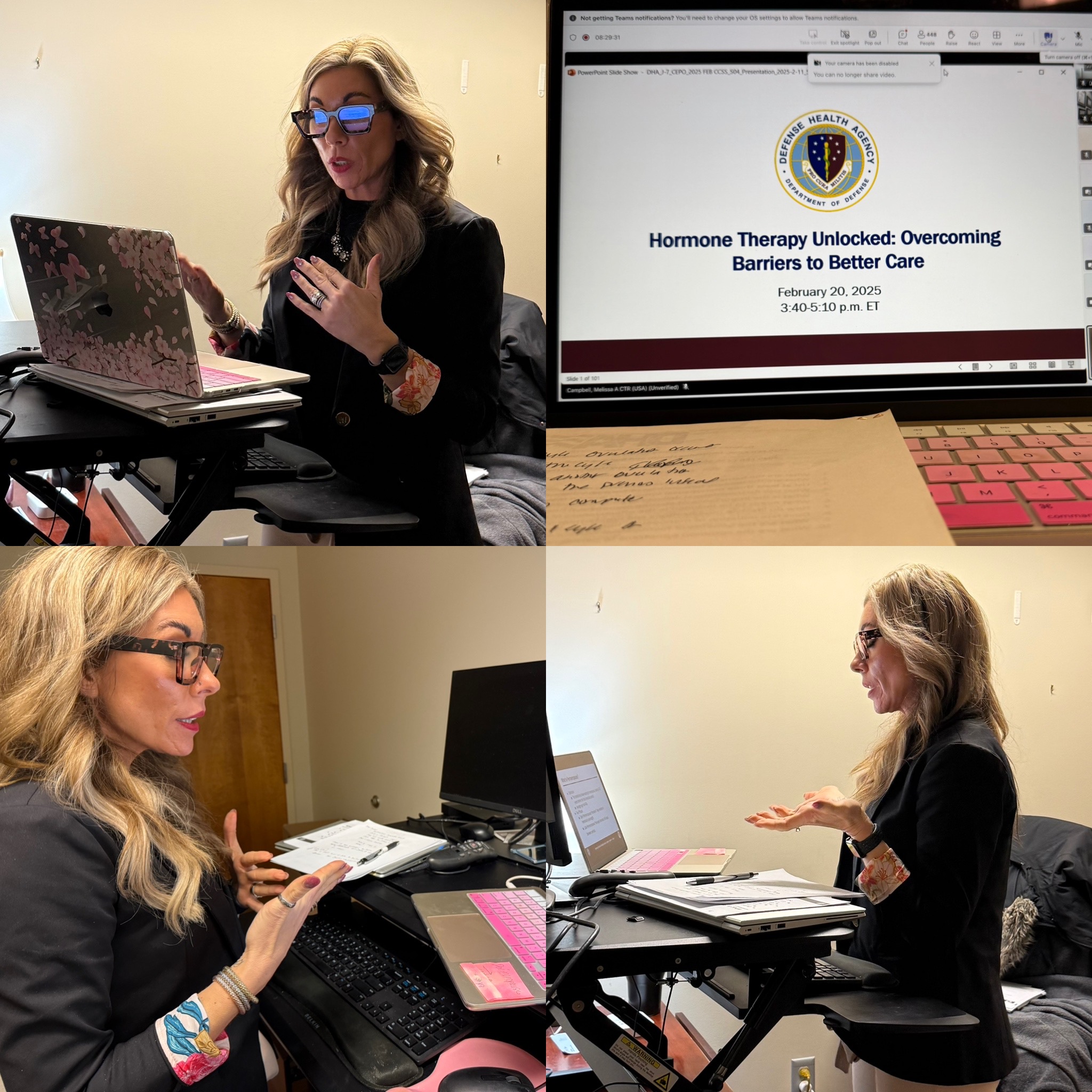
Can you share a story from your journey that illustrates your resilience?
One of the clearest examples of resilience in my journey has been growing Osteopathic Midlife Health while still working in the insurance-based model. When I launched my private telemedicine practice, it was just me—juggling patient care in two very different systems, learning the business side from scratch, and doing it all without a big safety net.
The early months were intense. I was figuring out legal requirements, building the structure, setting up tech systems, and trying to make sure patients understood the value of this new kind of care—all while still working my insurance-based role. There were plenty of moments where it would have been easier to wait, or to scale back my vision. But I kept showing up, breaking the work into manageable steps, and reminding myself why I was doing this.
That persistence opened the door to even more growth. In March, I became the co-host of The Dusty Muffins™ podcast, and just last week, I launched my own YouTube and podcast series. Adding those projects on top of running two clinical roles wasn’t easy—but they’ve allowed me to reach women far beyond the exam room, which is exactly what I set out to do.
Resilience, for me, isn’t about never feeling tired or uncertain—it’s about holding onto your “why,” taking consistent action, and trusting that forward momentum, no matter how small, will add up to something meaningful.
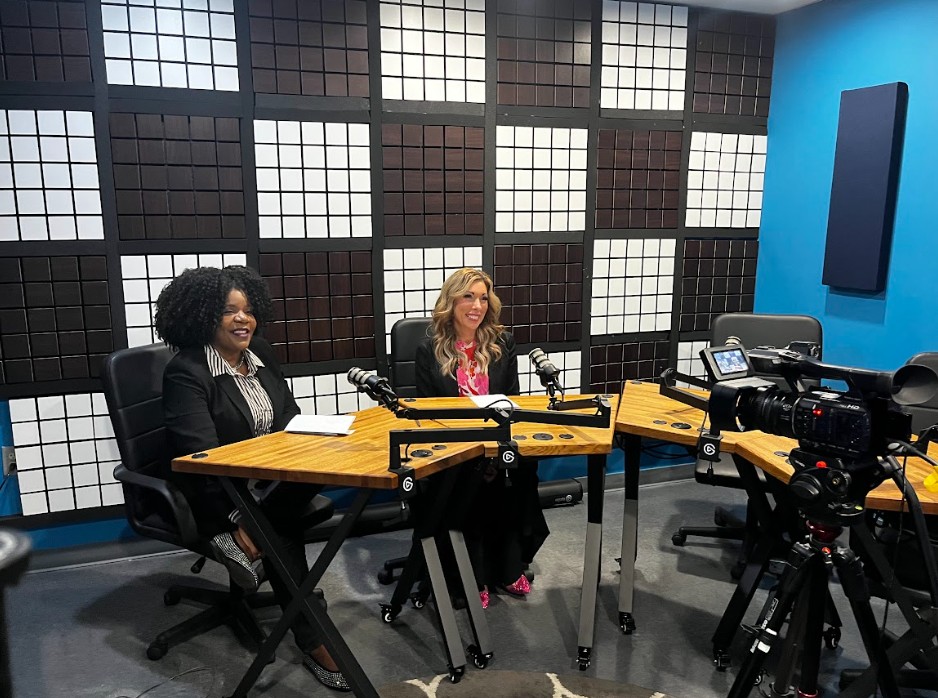
Other than training/knowledge, what do you think is most helpful for succeeding in your field?
Other than training and knowledge, I think the most important factor in succeeding in my field is connection—both with patients and with peers.
In midlife and menopause care, we’re often meeting women at a vulnerable and sometimes frustrating chapter of their lives. The science matters, of course, but what really builds trust is listening without rushing, validating what they’re experiencing, and partnering with them on solutions. That connection allows patients to open up, which means you get better clinical outcomes and a much more rewarding practice.
The other side of connection is with colleagues. Medicine can be isolating, especially when you’re running your own practice. Surrounding yourself with other clinicians, entrepreneurs, and thought leaders keeps you learning, prevents burnout, and opens doors you didn’t even know existed.
In short, the skill that’s most helpful in this field—beyond the knowledge—is the ability to build authentic, lasting relationships. It’s the difference between being a good clinician and being a truly impactful one.
Contact Info:
- Website: https://osteopathicmidlifehealth.com/
- Instagram: https://www.instagram.com/drrebbeccaherteldo/
- Facebook: https://www.facebook.com/profile.php?id=61557747436447
- Linkedin: https://www.linkedin.com/feed/
- Youtube: https://www.youtube.com/@RebbeccaHertelDOMSCP
